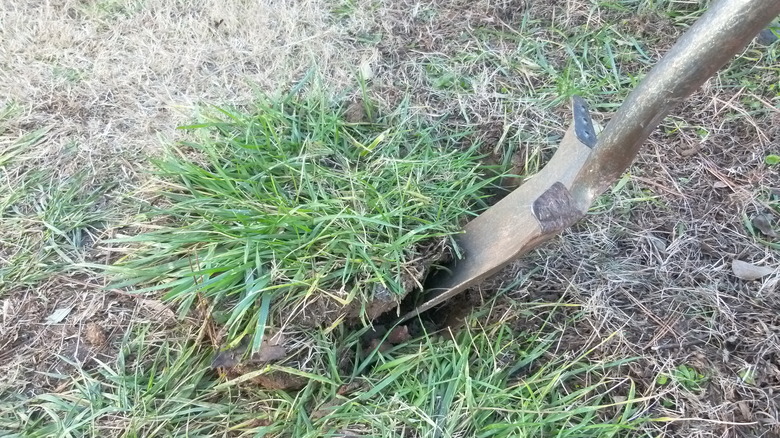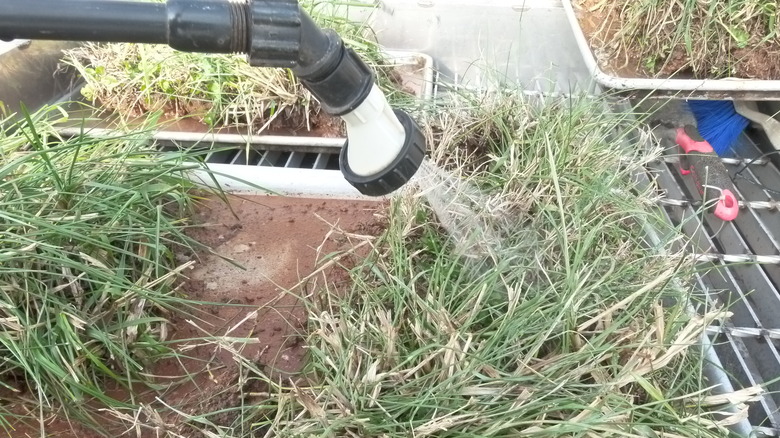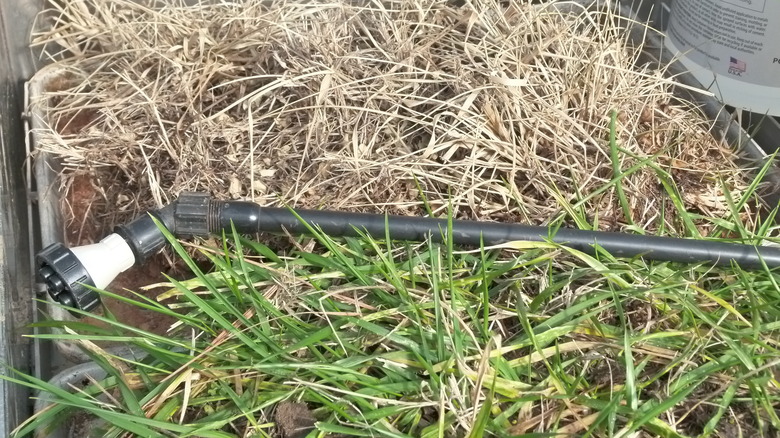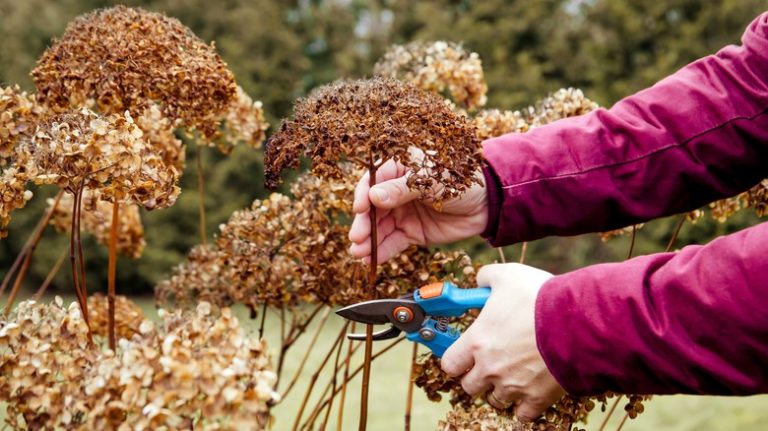Before 2024, you couldn’t get into many local hardware stores without brushing up against a few pallets of Roundup. Anyone who’s spent time with a vegetable garden knows that Roundup was likely how those pristine, weed-free gardens got that way. But with Bayer discontinuing the weed killer for home use, what’s a gardener to turn to? We turned to the old DIY standby, vinegar, and tested four variations that would be appropriate for organic gardening. Almost any recipe you find online for DIY weed killer will be some variation of the vinegar, salt, and dish soap mixture. We assume it’s effective, but we wanted to find out for sure.
Whatever the health consequences of using glyphosate-based Roundup around your home and garden, there were some benefits. Aside from the weed-killing itself, glyphosate reduces the amount and concentrations of chemical herbicides necessary to maintain a garden, and it reduces the need to mechanically kill weeds by tilling, which promotes erosion and runoff of agricultural herbicides and fertilizers. Glyphosate is sprayed on foliage and works by preventing plants from making certain amino acids necessary for creating proteins necessary for life. While it doesn’t harm plants when absorbed into the soil, its soil half-life can be as long as 249 days.
Vinegar, on the other hand, damages and desiccates plants. It can affect soil pH, but rarely for more than a few days. The Organic Materials Review Institute (OMRI) allows the use of non-synthetic vinegar for weed control in organic farming.
Preparing to kill (dying) grass

We concocted four batches of vinegar-based herbicide: three contained only vinegar at 5%, 20%, and 30% concentrations. The 30% vinegar was full-strength Harris vinegar from Lowe’s, $21.98 for 128 ounces. (OMRI has approved 20% Harris vinegar but doesn’t specifically address the 30% solution.) The weaker concentrations were diluted from the Harris vinegar using tap water. These percentages were designed to match some of the research that’s been conducted on the use of vinegar as a herbicide. The final batch was mixed at 20% strength and also included table salt and Dawn dish soap, which we had on hand, as a surfactant, following the most common recipe we found online.
Because we did our tests well into the fall when most grass in the area was dormant, we stripped sod containing soil, grass (probably fescue), and a small number of broadleaf weeds from an area above a septic system which still had a lot of green grass. (It was probably warmer there and certainly better-fertilized.) We collected two half-sheet baking pans of sod, and we then broke into four roughly 9-by-13-inch blocks of sod. We took these into a greenhouse and watered them until they had clearly recovered from the trauma of being moved, then applied our DIY herbicide mixtures to them.
Testing our four vinegar mixtures

We kept the amount of herbicide roughly consistent using a garden sprayer. After the initial application, we decided to immediately re-apply the vinegar mixtures because the heat of the greenhouse quickly evaporated the original misting. There’s no way to know what the results of that initial misting might have been, but even a fairly liberal application of vinegar dried surprisingly quickly. But one thing we know for sure: whether it appears to evaporate or not, when you get enough vinegar on your clothes, you’re going to get some sidelong glances at the grocery store later.
After applying the herbicide mixtures, we took note of the condition of the grass and broadleaf weeds in the sod blocks at 4 hours, 12 hours, 1 day, and 2 days. We anticipated that the experiments would follow the same arc as some research we had read about in advance. The USDA Agricultural Research Service found that 5% vinegar was ineffective and that 20% strength resulted in weed control effectiveness ranging from 28% to 45%, meaning presumably that between 28% and 45% of the grass and other weeds were killed. One notable difference between this study and our little experiment was that we were using well-established grass and weeds at the end of their growing season, while the USDA researchers were working with soil that had been cleared of weeds one month before, meaning that any weeds found were very small and therefore more susceptible to the effects of herbicides.
Rounding up the best vinegar-based weed killer options

Ron Baker/House Digest
Our vinegar experiments seemed plenty effective. The 30% vinegar made a clear difference, killing the broadleaf weeds almost immediately and killing the grass faster than even the 20% solution. However, the grass we were mainly treating was already partly dormant, and some of the green leaves were curling, we presumed, from the effects of a cold snap.
It’s also worth noting that, even taking a fair amount of care, completely avoiding skin contact with the vinegar solution is difficult. And, even when rinsed immediately, 30% vinegar irritates the skin. The smell was also persistent everywhere we used it, even after cleaning. Since speed, measured in hours, isn’t usually the primary goal for killing weeds, it could be just as effective, and some small amount safer, to use a 20% solution. And that’s our recommendation: Based on our experiment and previous research, a 10% to 20% vinegar solution appears to be effective at killing grass and most broadleaf weeds. You might be a little more efficient, time-wise, to use 30%, but it’s probably not enough to justify the risks. And remember that it’s indiscriminate in its effects, so think twice before using vinegar to kill weeds. It’s a sound idea, but it is a risk to the plants you don’t want to kill as well. It’s best used as a small part of a multifaceted plan to harmlessly kill weeds in your lawn.



